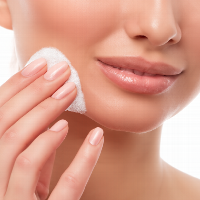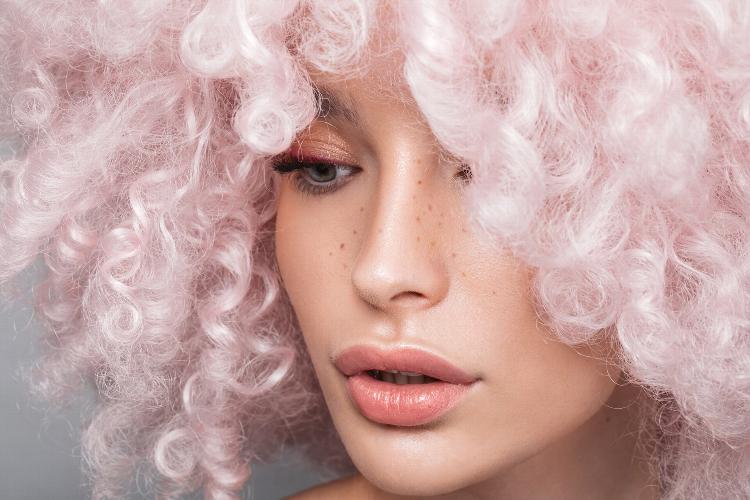Unlocking Nature's Secrets: 10 Natural Hair Tonics to Boost Growth and Hair Care Practices to Keep Your Locks Healthy
When it comes to hair care, everyone wants longer, stronger, and healthier hair. But did you know that the secret to achieving this may lie in nature? Instead of relying solely on expensive treatments, incorporating natural remedies and proper hair care practices can help you achieve the healthy, vibrant hair you've always dreamed of. In this blog, we'll explore two key areas: the top 10 natural tonics to accelerate hair growth and essential hair care habits, including why you should avoid harmful practices like using bicarbonate of soda to strip hair colour.
Part 1: 10 Natural Hair Tonics That Can Help Your Hair Grow Faster
For centuries, people across the world have harnessed the power of plants, oils, and natural remedies to encourage hair growth. These natural tonics not only help promote hair growth, but they're also gentle on your hair and scalp, and budget-friendly too. Let's dive into some of the most effective natural ingredients that could transform your hair growth journey!
1. Rosemary Oil
Rosemary oil is known for stimulating blood circulation in the scalp, which can help hair follicles grow faster. It's rich in antioxidants that strengthen hair follicles, improving hair thickness and texture.
How to use: Mix a few drops with a carrier oil like coconut oil. Massage into the scalp for 5-10 minutes, leave it for 30 minutes, then wash out.
2. Aloe Vera
Aloe vera has enzymes that promote healthy hair growth, soothe the scalp, and prevent dandruff. It hydrates and strengthens hair from root to tip.
How to use: Extract fresh gel and apply it directly to your scalp. Leave for 20-30 minutes before rinsing.
3. Castor Oil
Packed with ricinoleic acid, castor oil increases circulation to the scalp and nourishes hair follicles.
How to use: Massage warm castor oil into your scalp and hair. Leave it on for a few hours or overnight, then wash out.
4. Fenugreek Seeds
Rich in protein, iron, and nicotinic acid, fenugreek seeds reduce hair fall and promote thicker, shinier hair.
How to use: Soak seeds overnight, grind them into a paste, and apply to your scalp. Leave for 30-60 minutes before washing.
5. Onion Juice
Onion juice is high in sulfur, which supports collagen production and strengthens hair follicles.
How to use: Grate an onion, extract the juice, and apply it to your scalp for 20-30 minutes before rinsing thoroughly.
6. Ginseng
Known for improving scalp circulation, ginseng stimulates hair follicles for faster growth while protecting hair from damage.
How to use: Use ginseng oil or extract in hair masks, or massage it directly into the scalp.
7. Hibiscus Flower
Rich in amino acids and vitamin C, hibiscus promotes collagen production, strengthens hair, and prevents premature greying.
How to use: Crush hibiscus petals, mix with coconut oil, and apply to your hair. Leave for 30 minutes before rinsing.
8. Green Tea
Green tea is packed with antioxidants, including EGCG, which promotes hair growth by stimulating circulation to the scalp.
How to use: Brew a strong cup, cool it, then pour over your scalp after washing your hair. Let it sit for a few minutes before rinsing.
9. Peppermint Oil
Peppermint oil improves blood flow to the scalp, encouraging hair growth and balancing natural oils.
How to use: Mix with a carrier oil and massage into your scalp. Leave for 20-30 minutes before washing out.
10. Bhringraj (False Daisy)
Bhringraj is an Ayurvedic herb used for centuries to prevent hair loss and promote growth.
How to use: Use bhringraj oil or powder mixed with water as a hair mask. Apply to your scalp for 30-60 minutes before rinsing.
These natural tonics can support your hair growth and scalp health, but consistency is key. These ingredients may take time to show visible results, but with patience, you'll be on your way to healthier, thicker hair.
Part 2: Hair Care Practices to Keep Your Hair Healthy
While natural tonics are great for boosting hair growth, your everyday habits and hair care tools are equally important in maintaining strong, beautiful hair. Here are a few tips to help protect your hair and promote its overall health.
Why Wooden Combs Are Better for Your Hair (And Why You Should Avoid Rubbing Wet Hair)
As a hairstylist with over 20 years of experience, I've seen first hand how the wrong tools and habits can damage hair without you even realizing it. Let's start with the importance of choosing the right comb and handling wet hair with care.
Wooden Combs vs. Plastic Combs: Why Wood Wins
Wooden combs are an excellent choice for hair care, offering several advantages over plastic combs:
Reduced Static: Wooden combs don't create static, which can lead to frizz and breakage.
Gentler on Hair: Wooden combs are smoother and less likely to snag, reducing stress on hair follicles and minimizing breakage.
Antibacterial Properties: Wood naturally resists bacteria build-up, while plastic combs can harbour oils and dirt.
Durability: Wooden combs are more durable and last longer than plastic ones, making them a more sustainable option.
Why You Shouldn't Rub Wet Hair: The Risk of Breakage
When hair is wet, it's much more fragile. Rubbing it with a towel can cause significant damage:
Weakened Strands: Wet hair is more elastic and prone to breakage when rubbed harshly.
Cuticle Damage: Rubbing can lift the cuticle, making hair more susceptible to tangling and breakage.
Better Alternatives: Instead of rubbing, gently pat your hair with a microfiber towel or use a wide-tooth wooden comb to detangle from the ends up.
Why You Should Avoid Using Bicarbonate of Soda (Baking Soda) to Strip Hair Colour
As a professional hairdresser with over 20 years of experience, I've witnessed many hair care trends come and go, but one that consistently raises red flags is the use of bicarbonate of soda (baking soda) to strip hair colour. While it may seem like a quick and easy way to remove unwanted hair dye, I strongly advise against using it. Here's why:
1. Strips Natural Oils
Baking soda is highly alkaline, with a very high pH level—much higher than your hair and scalp's natural pH. Your scalp and hair naturally have a pH of around 4.5-5.5, which is vital for maintaining healthy hair by preserving its natural oils. Baking soda's high pH disrupts this delicate balance, stripping away these essential oils.
When your hair is deprived of its natural oils, it becomes dry, brittle, and prone to breakage. Healthy hair relies on these oils for moisture and protection, so when they're stripped away, your hair can lose its softness, shine, and manageability.
2. Increased Dryness and Fragility
Once baking soda removes moisture from your hair, your hair becomes more porous and susceptible to further environmental damage, like UV rays, pollution, and even other hair treatments. The cuticle, which is the outer protective layer of your hair, becomes rougher, making it easier for hair to tangle and break, especially when combing or styling.
As a stylist, I've seen how repeated use of baking soda can leave hair significantly weaker and prone to further damage, with some clients even experiencing hair loss due to excessive breakage and thinning.
3. Unpredictable Results on Hair Colour
While baking soda may seem to lighten or remove hair dye, it's not a reliable or controlled method for colour correction. Instead of selectively removing dye, it alters the entire structure of your hair. This can result in uneven patches, a dry, rough texture, and unwanted colour changes. Using baking soda as a DIY colour remover often leads to patchy or brassy tones, which are difficult to fix even with professional products.
4. Safer Alternatives for Removing Hair Colour
If you need to strip or lighten your hair colour, there are far safer and more effective options. Professional hair colour removers, clarifying shampoos, and salon treatments are designed for this purpose and are much gentler on your hair. A stylist can help you address the underlying colour issues without compromising your hair's health.
The Bottom Line: Protecting Your Hair's Health
While natural remedies like rosemary oil and aloe vera can help stimulate hair growth, it's essential to adopt healthy hair care practices and use the right tools to protect your locks. Avoid harmful habits like rubbing wet hair or using baking soda to strip colour. With the right care and patience, you can achieve long, strong, and healthy hair that lasts.
Remember, when in doubt, seek the advice of a professional stylist who can guide you toward the best practices for your hair type.
Your hair deserves to be treated with care—don't risk its health for a quick fix!




